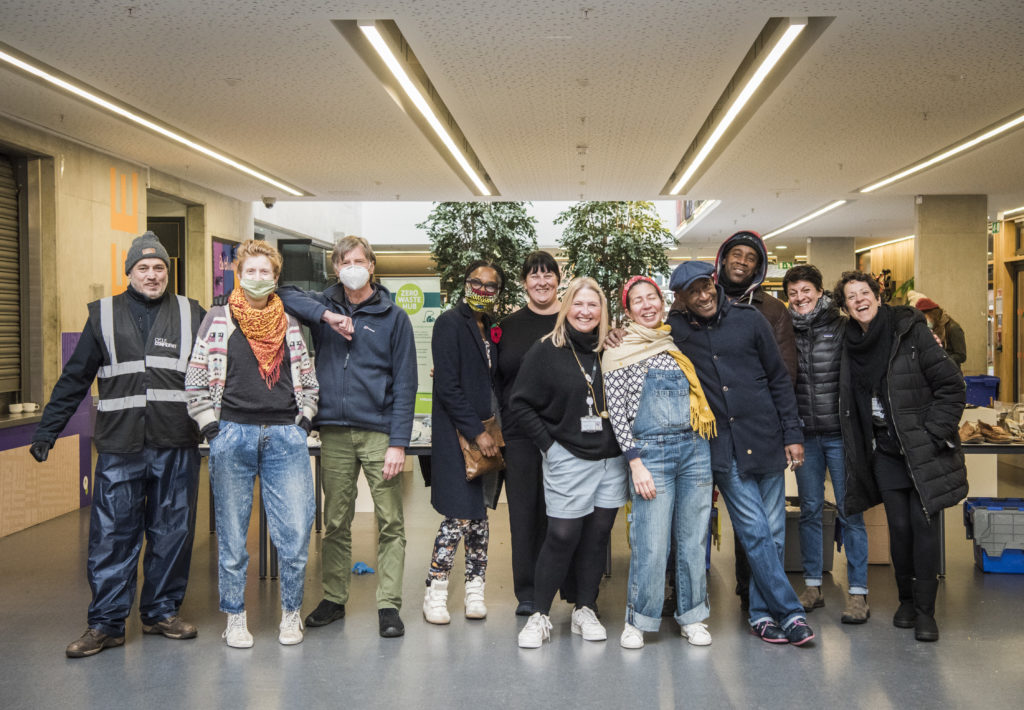Step by Step: Getting Started
Before you start your own Community Repair Group, check whether there’s already an existing group in your area. It’s almost always better to team up with an existing initiative if one exists.
Every Community Repair Group is unique, and yours will be too. It is always a good idea to experience an event first hand before setting up your own, to get some tips and see how others are doing it.
Your first step might be contacting your nearest CRN member or visiting another established community repair group in your area. You may choose to register with an umbrella organisation such as Repair Café International, The Restart Project, Repair Cafe Wales or another local network that can support you in setting up your own group.
Here are our top tips for getting started:
Find volunteers
- You may need help with publicity, finance/ fundraising, admin, but of course, you need people who can fix things!
- You can get started with a very small team and trust that you will attract volunteers as you go along or you may want to establish your team first before you launch.
- Try advertising for volunteers in a wide variety of places such as Facebook community groups, local papers and noticeboards, through your local council or word of mouth.
Find a venue
- Consider a venue that is accessible for everyone – groups often use community centres, libraries, and cafés. Look around for a space that feels right and doesn’t cost much to use – cafés may appreciate you bringing them customers and let you have the space for free if you ask.
- Make sure there is enough space to host your volunteers and people waiting to get items fixed. Good ventilation and space between people is now more important than ever so consider whether the venue can offer you these things.
- A venue will need enough power sockets and good lighting. You may also want to look for a venue where you can prepare and offer refreshments for donations.
Fund your event
- Work out the costs of running your event, including venue hire, advertising and insurance. To start with you will want to keep these costs to a minimum and may ask your volunteers to bring their own tools until you have enough funds to build up your kit.
- Speak to other Community Repair Groups and visit our fundraising page to see if you can secure funding towards your set up costs.
- Although Community Repair Group events are free, donations are accepted to help with the running costs. Consider where to situate your collection pot to make it easy to find for participants who want and are able to make a donation.
Advertise your event
- Try different types of advertising to reach all parts of your community. Some of the people you want to reach may not have digital access so consider a range of mediums e.g. printed posters, local media and of course social media are a good start.
- You may wish to publicise which items people can bring to repair.
Safety first
- It’s recommended you get insurance. Get some advice from your nearest Community Repair Group, and get some tips on our insurance page. For example, Repair Café Wales has an umbrella insurance policy you might be eligible to use to get started.
- Carry out a risk assessment for the venue and activities you’ll be doing. Again you can ask an existing Community Repair Group for a template or advice on how to do this.
- Consider having house rules in place with a liability disclaimer for your volunteers and attendees. Make sure this is visible at events. You could even ask participants to sign a waiver form.
On the day
Of course, every event is unique, but you might have:
- A volunteer welcoming attendees. Do you need more than one?
- A waiting or queuing system. Could you give numbered tickets or list people on a whiteboard?
- A waiting area. Could you provide refreshments?
- Stations for your volunteer repairers. Will your repairers show attendees how to fix their items or guide them through carrying out the repair themselves?
- A way to record items and the experience of attendees. Could you ask participants to fill in a form, a guest book or a screen? This can help with gathering valuable data on repair and also provide feedback on your events to help you develop them in the future.
- An online booking system prior to the event (however this method may not be as inclusive).
You may want to photograph the event and the participants. This is a good way to capture the feel of the event and to help publicise the next one. Just remember to ask permission from anyone that appears in the photographs first!
Note: this advice is not comprehensive and we would strongly recommend chatting with an existing group or network about your plans.
We can help!
Whether you're just starting a new repair group or you've been running events for a while, we're here to share our experiences and offer support. Simply get in touch with your nearest network member and let them know what you need.

